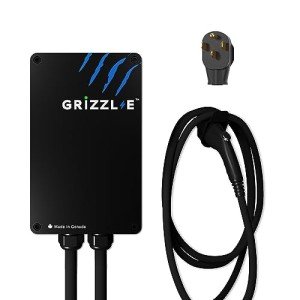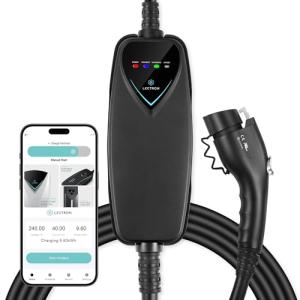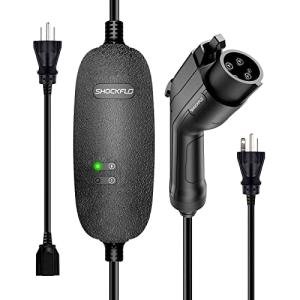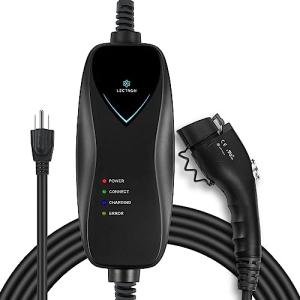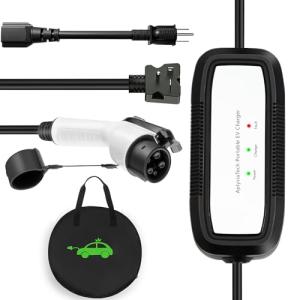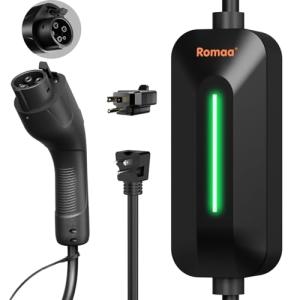When it comes to electric vehicles (EVs), understanding the different Electric Vehicle Charger Types is super important. Each type serves a specific purpose and will affect how quickly and conveniently you can charge your ride. Let’s break them down!
Level 1 Chargers are the most basic option. These chargers plug into a standard household outlet, so you can set one up in your garage or parking spot without any special installation. The catch? They’re pretty slow, usually adding about 4 to 5 miles of range per hour. This means they’re ideal for those overnight charges or if you don’t drive much during the day.
Level 2 Chargers are your go-to for faster charging. These need a dedicated 240-volt outlet, similar to what’s used for a dryer. With Level 2 chargers, you can expect to gain 10 to 60 miles of range in just an hour. They're perfect for home setups and are commonly found at public charging stations, making them great for quick top-offs on the go.
DC Fast Chargers are the heavy hitters and are often found at commercial charging stations. They provide rapid charging capabilities and can add about 60 to 100 miles of range in just 20–30 minutes. You won’t likely have one at home because they require specialized equipment and a high-power connection, but they’re a lifesaver on long trips!
Now that you’ve got the scoop on Electric Vehicle Charger Types, you can choose what best fits your lifestyle. Whether you need a slow overnight charge, something quicker for those busy days, or a rapid boost when you're on the road, there’s a charger out there for you!
Understanding Level 1 Charging
Level 1 charging is the simplest way to charge your electric vehicle (EV). It uses a standard home outlet, just like the one you plug your phone charger into. This makes it super convenient since you don’t need any special equipment or installation. If you want to charge your EV overnight, this is often the best option. You can just plug it in and let it work while you sleep!
When you connect your EV to a Level 1 charger, it typically adds about 3 to 5 miles of range per hour. While that might not sound like much, it can be plenty if you drive short distances daily. Imagine plugging your car in every night, and waking up to a full battery each morning. It’s low-tech but effective for many drivers.
One thing to keep in mind is that Level 1 charging is best suited for those with limited driving needs. If you frequently take long trips or have a daily commute that exceeds 40 miles, you might want to explore other Electric Vehicle Charger Types, like Level 2 chargers. They charge much faster, giving you a quick boost when you need it.
Overall, Level 1 charging is a great starting point if you're just getting into the EV game. It's budget-friendly and doesn't require any fancy installations. So, if you're looking for something simple that gets the job done, a Level 1 charger might be the perfect fit for your electric ride.
Manwe Grizzl-E Level 2 EV Charger with 24ft Cable
Power up your electric vehicle quickly and easily with this durable and convenient 24ft charger
Product information
$349.99 $299.99
Product Review Score
4.37 out of 5 stars
204 reviewsProduct links
Exploring Level 2 Options
When it comes to Electric Vehicle Charger Types, you’ll find that Level 2 chargers stand out as a top choice for most EV owners. Why? They provide a powerful solution that can significantly speed up charging times compared to Level 1 options. With a Level 2 charger, you can usually get a full charge in just a few hours, making it a perfect fit for overnight home charging or a quick top-up during the day.
One of the best things about Level 2 chargers is their versatility. They can be installed at home, in public charging stations, and even at workplaces. Plus, most public spots you come across will likely have Level 2 chargers, so you'll have plenty of options while you’re out and about. It's convenient when you need to juice up during lunch or while running errands.
Installing a Level 2 charger at home does require a bit of an upfront investment, but the benefits are worth it. You can enjoy faster charging times and easy access right in your garage or driveway. Keep in mind that these chargers require a dedicated 240-volt outlet, so you might need an electrician to help set it up. Once it’s up and running, you’ll wonder how you ever managed with just a Level 1 charger.
When choosing a Level 2 charger, look for features that matter to you. Some chargers come with smart options, letting you control them from your smartphone. Others include built-in safety features and adjustable charging speeds, which adds to their appeal. Finding the right match can make your EV experience even smoother. Keep these factors in mind as you explore the different Electric Vehicle Charger Types available today!
Lectron Level 2 Portable EV Charger - WiFi, 40 Amp
Charge your electric vehicle quickly and conveniently from anywhere with this powerful and portable Level 2 charger
Product information
$279.99
Product Review Score
4.72 out of 5 stars
207 reviewsProduct links
Quick Look at DC Fast Charging
If you’re diving into the world of electric vehicle charger types, you’ve probably heard about DC Fast Charging. This is the quick pit stop for your EV, letting you charge up to 80% in about 30 minutes. It’s a real game changer for those long road trips or when you’re just in a hurry.
How does it work? Well, DC Fast Chargers send direct current (DC) straight to your car’s battery. Unlike Level 1 or Level 2 chargers that use alternating current (AC), DC Fast Charging skips a few steps. It’s like getting a rocket boost rather than a slow reload at a gas station.
These chargers are typically found at highway rest stops or major charging hubs, making them super convenient for anyone who needs a quick charge on the go. But remember, not all electric vehicles are compatible with DC Fast Charging. So, check your car’s specs before you plan a trip!
If you're considering an EV or looking to understand different electric vehicle charger types, DC Fast Charging is definitely something to keep on your radar. It's fast, efficient, and can be a real lifesaver when time is tight. Just plug in and get back on the road in no time!

